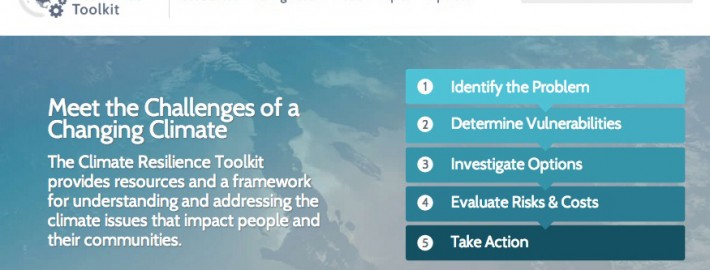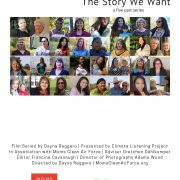climate resiliency toolkit
From the White House website:
Today, the State, Local, and Tribal Leaders Task Force on Climate Preparedness and Resilience – a group of leaders from across the country who are working to boost resilience efforts in their communities – released recommendations on ways in which the federal government can support actions to address the impacts of climate change.
In response to early input from the Task Force, the Administration has developed the Climate Resilience Toolkit, a website that provides centralized, authoritative, easy-to-use information, tools, and best practices to help communities prepare for and boost their resilience to the impacts of climate change.
The Task Force organized its report across seven cross-cutting themes: building resilient communities; improving resilience in the Nation’s infrastructure; ensuring resilience of natural resources; preserving human health and supporting resilient populations; supporting climate-smart hazard mitigation and disaster preparedness and recovery; understanding and acting on the economics of resilience; and building capacity.
The Toolkit, which is publicly accessible at toolkit.climate.gov, initially focuses on the topics of coastal flood risk and food resilience. In the coming months, it will be updated to address additional areas such as water, ecosystems, transportation, and health. Some features of the Toolkit include:
- The Climate Explorer: A visualization tool that offers maps of climate stressors and impacts, as well as interactive graphs showing daily observations and long-term averages from thousands of weather stations across the Nation.
- Steps to Resilience: A five-step process that users can follow to initiate, plan, and implement projects to help make their homes, communities, and infrastructure more resilient to climate-related hazards.
- “Taking Action” Stories: More than 20 real-world case studies describing climate-related risks and opportunities that communities and businesses face, steps they’re taking to plan and respond, and tools and techniques they’re using to improve resilience.
- Federal Resource Database: The Toolkit provides centralized access to federal sites for future climate projections, as well as freely available tools for accessing and analyzing climate data, generating visualizations, exploring climate projections, estimating hazards, and engaging stakeholders in resilience-building efforts.
–
Stories of local resilience from the Climate Listening Project:











